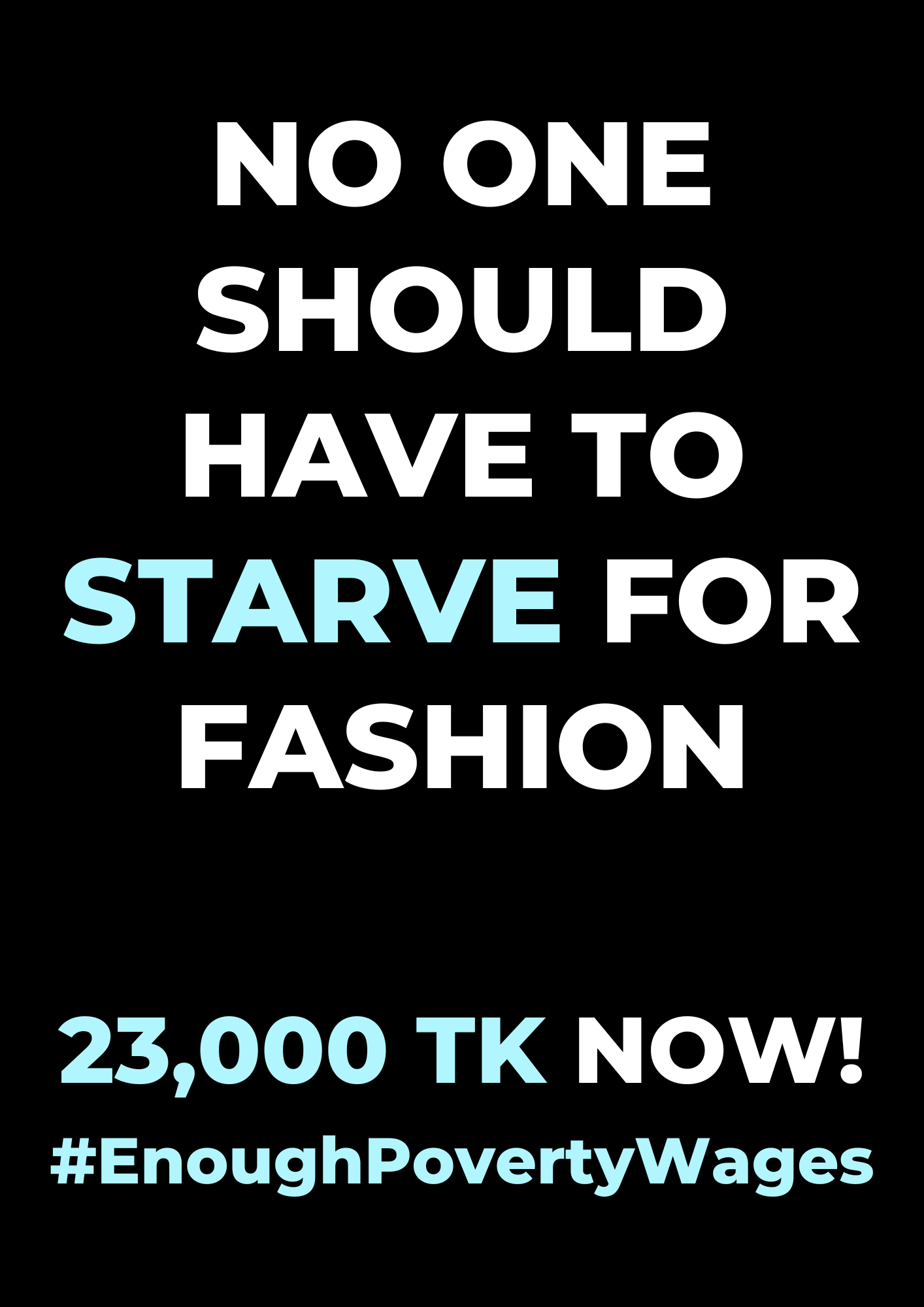Newsletter No. 16 - Bangladeshi garment workers fight for a living wage
How you can help end poverty wages in Bangladesh.
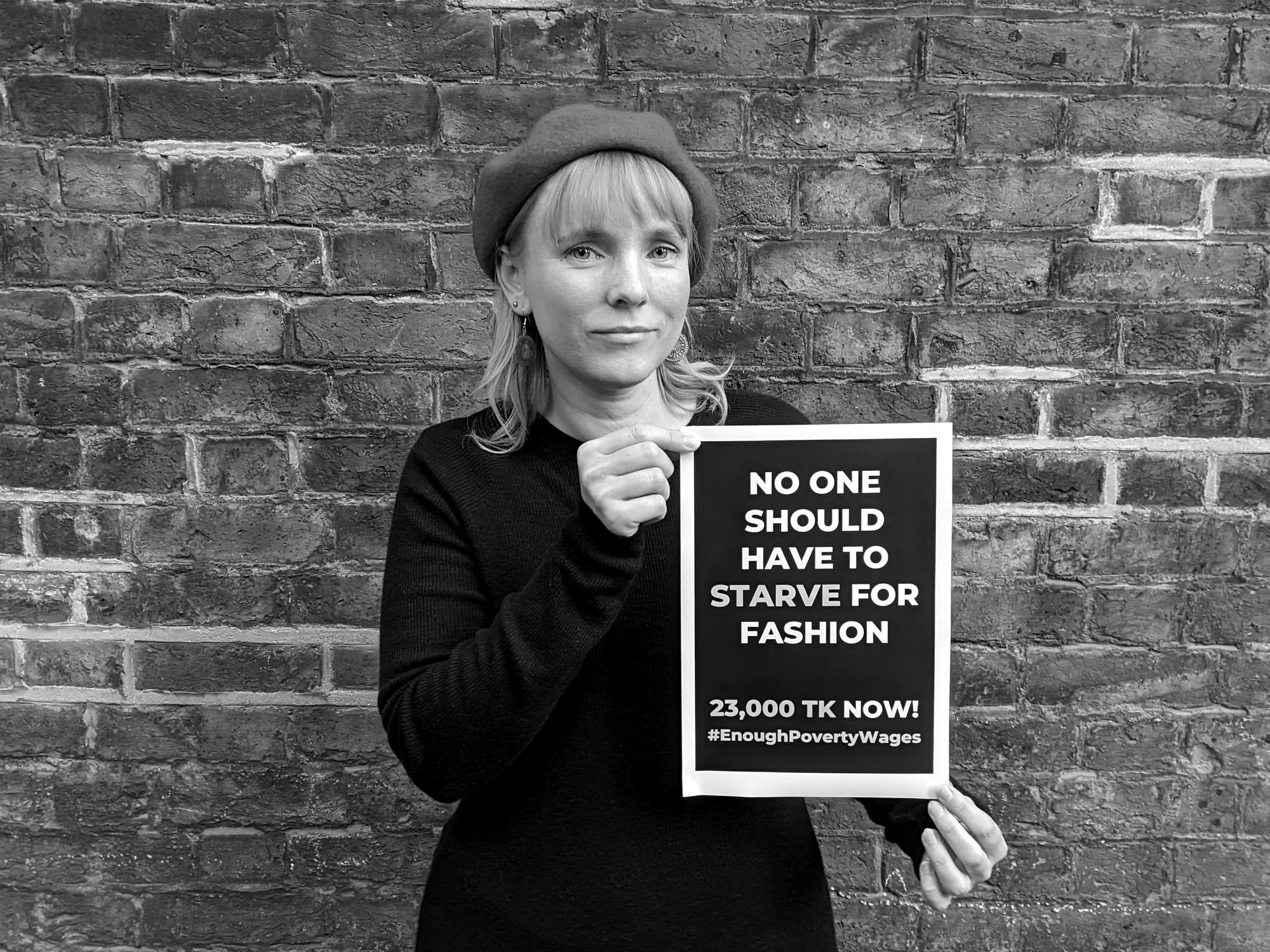
Dear Friends,
I hope you are well and if you are in the autumn season, I hope you are keeping warm. The news is exceptionally difficult to watch at the moment. I suspect that most if not all of you will be fully conscious and active around what is happening in Gaza at the moment so I will just say that I agree with this statement from War on Want, and encourage people to join the demonstrations and push for an immediate ceasefire as a first step.
I want to write today about a critical moment for garment workers in Bangladesh. Please have a read and a share and take any of the suggested actions that you can.
MADE IN BANGLADESH
On the 1st November the Minimum Wage Board in Bangladesh will make its once every five year decision on setting a new minimum wage for garment workers.
The minimum wage in the Ready-Made Garment (RMG) sector is currently set at 8,000 taka per month – roughly £60. Even when this was set five years ago in 2018 it was not considered adequate to meet the basic cost of living. Since 2018 there has been the pandemic, severe economic crisis in Bangladesh, and rising inflation which has ramped up the cost of everything from food and medicine to housing and transport – for example in 2018 the cost of 4 eggs was 12 taka, today it is 70 taka yet wages have stagnated. Meat, fish and fruit have become luxuries that workers cannot afford.
Trade unions and labour organisations are calling for the minimum wage to be increased to 23,000 taka per month – roughly £172. The Global Living Wage Coalition estimated last year that a monthly minimum wage of 23,254 taka is needed for a family of four to have a basic but decent life.
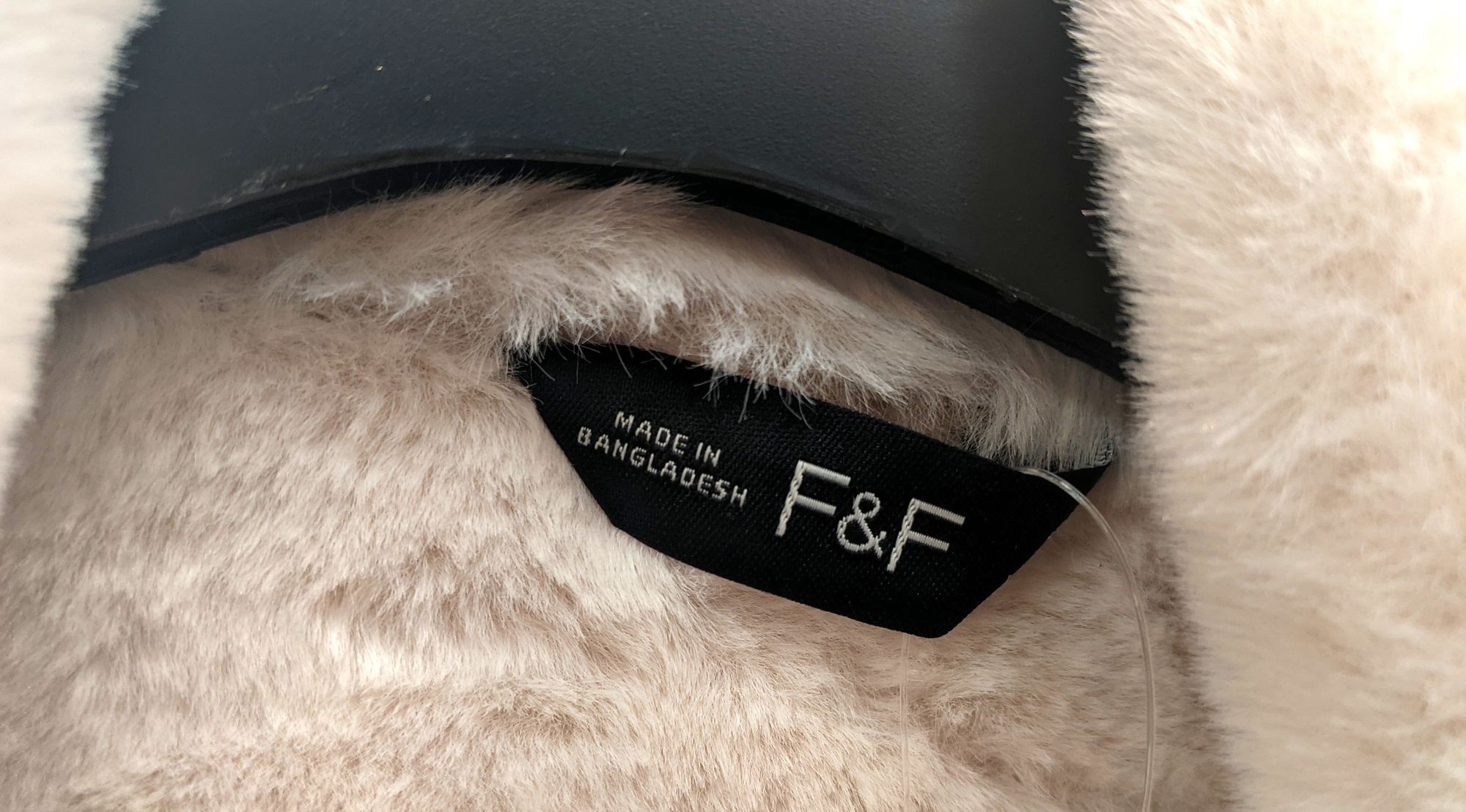
Negotiations are not, however, going well. Bangladesh’s factory owners are currently proposing a miserly increase of 2,400 taka. Factory owners are part of a powerful ruling class in Bangladesh with business interests mixed in with politicians and military figures. They are arguing that inflation, particularly of fuel prices, coupled with lower orders means the wage increase should be minimal.
But the fact is Bangladesh is utterly dependent upon its garment workers. A staggering 84 per cent of everything Bangladesh exports is garments made by workers who urgently need a pay rise. The value of these exports more than doubled between 2011 and 2019 from $14.6 billion to $33.1 billion. In 2021-22, Bangladesh’s garment exports achieved an all-time high, reaching $42.613 billion. Factory owners and the government have their sights set on a $100 billion industry – to be built off the backs of garment workers who can't afford sufficient food.
Such a low minimum wage increase is not even regionally appropriate – garment workers in China make the equivalent of 24,890 taka per month, in Malaysia it’s 25,935 taka, and in the Philippines around 23,180 taka. Recently, the wage in Cambodia was set at 22,587 taka.
Exploitative factory owners in Bangladesh do not alone explain why wages in Bangladesh are so low. To understand the fashion industry we must look to the boardrooms of London and New York and comprehend that it takes the average fashion company CEO just 28 minutes to amass what a Bangladeshi garment worker earns on average in a year.
In 2019 the fashion industry generated $2.5trn in global revenues, making it one of the largest industries in the world. It is an industry awash with billionaires from Amancio Ortega who owns Inditex (Zara) and the Persson family who control H&M.
Despite all of this money, ongoing research by the Clean Clothes Campaign has found that, as of 2023, there are no major brands, either fast fashion or luxury, which can prove all workers in their supply chain earn a living wage: 'No garment or sportswear company recognises that brand business practices have a direct effect on workers’ wages, leaving millions of workers deprived of not only wages but sleep, access to health care, safe transport, the ability to live with loved ones, adequate food, education, even time poverty from needing to work extra hours.'
“When you hear workers can’t even afford the basics like eggs after working day in, day out for 6 days a week, you know the system is broken,” says Jay Kerr, a campaigner at No Sweat who is campaigning for a living wage. “Brands can claim to have all the ethical values in the world but when the people making their clothes are forced to live on poverty wages they are part of the problem, not the solution.”
Moments like this demonstrate that history is not a linear march towards progress; rather, it is a struggle between two sides – in this case Bangladeshi workers, and factory owners supported by the global ruling class. Gains for one represent losses for the other.
After 1st November the minimum wage will not be reviewed again for another five years - please add your voice to the voices of workers in Bangladesh who need it to be set at a living wage of 23,000 taka.
THREE ACTION POINTS
1) SIGN this letter which will be handed in to the Bangladeshi Embassy in London on the afternoon of Monday 30th October. Please sign it even if you are not in the UK.
2) Come to an Instagram Live Rally hosted by Labour Behind The Label on Monday 30th October at 12:30 GMT. I'll be one of the speakers but more importantly arrangements are being made for union leaders to join from Bangladesh. Link for the rally here.
3) Make a social media post holding a message to the fashion brands and the Government of Bangladesh - like the one I did for this newsletter. The sign I'm holding in the photo above can be downloaded at the end of the newsletter. Post it on your social accounts and tag the brands. Here's a simple message: We urge all brands sourcing from Bangladesh to do the right thing and publicly support the call for a 23,000 taka minimum wage before the wage review board announces its decision on 1st November.
This four minute film was produced by activists in Bangladesh to highlight their campaign.
Book News
I'm very happy to say that the German edition of The Anti-Capitalist Book Of Fashion has now been published as Das antikapitalistische Buch der Mode. Please tell your German-speaking pals! More here.
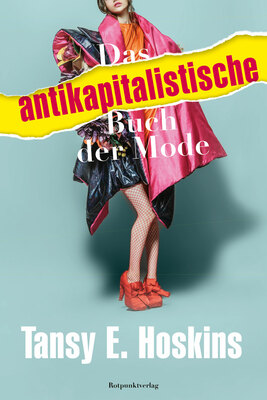
Event News
There's a fashion book I really like and I'm going to talk to its brilliant author about it, and the situation with the economic crisis in Sri Lanka, online next month.
The book: Garments without Guilt? Global Labour Justice and Ethical Codes in Sri Lankan Apparels by Professor Kanchana N Ruwanpura.
The date/time: 8 Nov from 12-1.30pm GMT. The organiser: The South Asia department of The Political Studies Association. Free registration: Here.
Notes From The Profit Margins
These are some of the things I am keeping my eye on in the industry right now.
- LEICESTER! For those of you not in the UK, the city of Leicester is a garment manufacturing centre in England, popular with fast fashion brands chasing speedy domestic production at low prices. The city's factories became infamous for exploitation and now orders have dropped leaving Leicester’s garment sector in crisis. Fast-fashion brands are forcing through discounts, making last-minute cancellations and imposing financial penalties. Garment workers have been made to do unpaid trial shifts, offered jobs below the minimum wage and are even being blamed by some for the dire state of the industry. In response there have been big demonstrations by workers in Leicester. Here's more on what is happening from Labour Behind The Label. Here's a good article to read. Here's the letter of support to sign.
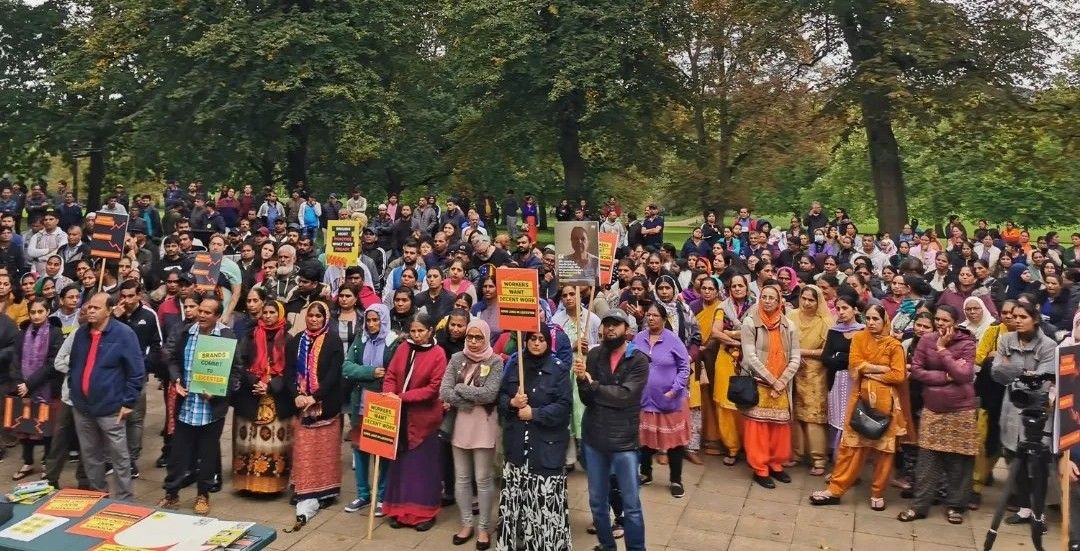
- This series on the link between deforestation in Cambodia and fashion: Entire villages in parts of Cambodia have turned to illegal logging of natural forests to supply the firewood needed by garment factories churning out products for international fashion brands. Here, here, and here.
- This fantastic sounding exhibition in London which I am going to go to: Fashion City - How Jewish Londoners shaped global style.
- This Heated article called Do we need to change our behavior? It's about the call for global recognition of a so-called “Human Behavioral Crisis,” and proposals for countries and individuals start recognizing the need for systemic change in social norms in addition to a change in energy systems.
- This (paywalled) Sunday Times investigation exposing modelling agencies scouting models from Kakuma, a refugee camp in Kenya. Refugee models described exploitation at the hands of their agencies, including being saddled with thousands of dollars of surprise debt they couldn’t possibly repay. Essentially the agencies are targeting some of the world’s most vulnerable people in the name of promoting diversity and equal opportunity. Just when you think the industry can't get any lower - it does. As former refugee and successful South Sudanese model Mari Malek said, “it is time for the fashion world to wake up and ask themselves at what cost to young African lives their diversity and inclusion policies are fulfilled.”
- A shout out to Give Your Best which supports refugees in the UK by providing free donated clothing.
- And finally - because I am obsessed with ancient shoes having loved that part of the research for Foot Work because of what they say about us as a species - there have been some truly ancient grass woven sandals discovered in a bat cave in Spain - 6,000 years old!
Thank you for reading, please share with anyone you think would be interested. I'll catch up with you before Christmas.
In solidarity, Tansy.
p.s. A reminder that I recently published a not-quite-book with War On Want all about Degrowth in the fashion industry - if you'd like to explore what a just transition for garment workers might look like, and how doom can be replaced by abundance, you can download the report for free here.
p.p.s. Here's the poster for printing or copying:
